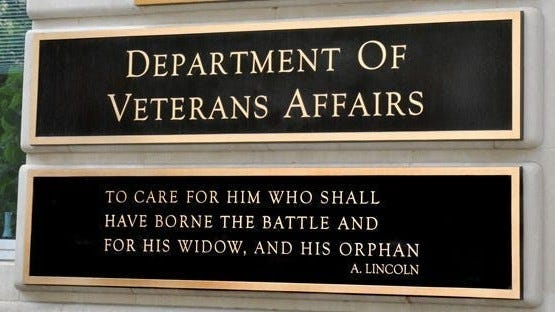
Women are the fastest-growing group of veterans and nearly half of the female veterans using VA health care have been diagnosed with a mental health condition.
That’s according to Dr. Jennier Strauss, the national lead and program manager for Women’s Mental Health in the VHA Office of Mental Health and Suicide Prevention and an associate professor of psychiatry and behavioral sciences at Duke University.

The rate exceeds the diagnosis of male veterans using VA health care, which stands at 26%. Strauss said the difference is do in part to the types of stresses and traumas that are more common among women than men in the military.
“In a nutshell, it’s trauma and biology,” she explained.
Women veterans are more likely than other veterans and even other women to experience sexual trauma and intimate partner violence, according to Strauss.
“They are both known to have a very high risk of being associated with mental health problems,” she said.
The stress of wanting children and planning a family can also lead to mental health challenges for military women.
“Women veterans are women,” she said. “Like all women, they can experience mental health challenges related to their reproductive life cycle.”
And many female veterans don’t know VA offers extensive, specialized mental health services for their unique needs, said Strauss.
“Not all women know that VA really does have specialized resources for women veterans,” said Strauss. “We do.”
Every VA facility now has a Women’s Mental Health champion on board, she said. WMH Champions are mental health clinicians who have a specific interest and specialized training in women veterans’ mental health. They work to develop local resources for women veterans facing mental health challenges, including those related to infertility and infertility treatment.
“Whatever door you walk into, there’s a point of contact for women’s mental health,” Strauss continued. “It’s making people comfortable and confident we can meet their needs.”
VA has also launched a Veterans Know campaign online that shares the stories of veterans tackling mental health issues.
“It is real veterans talking about their experiences with having mental health challenges and working with VA tools and resources towards recovery,” she said.
Strauss called the campaign “sociable,” with stories specific to both male and female veterans of all ages and service eras.
Strauss also urged women veterans to contact their local VA to find out more about the resources that are available to them.
Reach Julia LeDoux at Julia@connectingvets.com.


